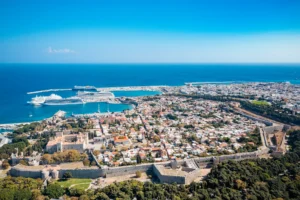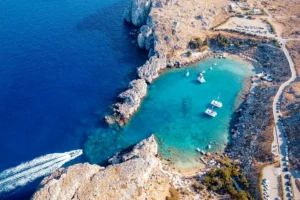Tips for eco-friendly vacations
Before you go away on holiday, there are a few things you should consider if for the environmentally aware you want to leave a lighter carbon footprint. Find eco-friendly destinations on the web. Contact hotels to find out their eco-awareness before you book. You should know that per person, buses and trains consume a third of the fuel a car does over the same distance.
Airplanes, particularly over short distances, emit five times more carbon dioxide than gasoline-powered automobiles. Plan your itinerary and excursions; reduce the number of flying hours and find the most environmentally friendly way to make each trip. Check to see if the company you have chosen to travel with has invested in a carbon offset. A carbon offset is a financial instrument representinga reduction in greenhouse gas emissions; in other words, it is a way to pay for the gas emissions each of us is responsible for by buying credits in, for example, renewable energy industries.
There are many firms offering this service in Greece, such as Climate Friendly, which collaborates with the WWF and Atmosfair, chosen by the Green Ecology party. Care needs to be taken to ensure the firm in question truly does work for the environment. Many claim it is better to give the money directly to a reputable environmental group.
Recently, the Green Key an international eco-label for leisure organizations, has been adopted by hotels that promote eco awareness. A hotel or organization to be awarded with the Green Key must fulfill technical criteria, management criteria and criteria on communication. Onsite checks are performed regularly on all Green Key owners. The Green key is unique in the sense that it also focuses on environmental education. The criteria has demands on staff, guests and suppliers in involvement in its criteria. In Rhodes, currently only one hotel is Green Key awarded, the Imperial Hotel at Ixia bay. Aldemar Paradise Royal Mare in Kalithea uses solar power for the 85% of its energy consumption.
Some airlines recycle garbage or have some other eco-friendly policy. Find out before you book with them. Opt for daytime flights. A survey by the University of Reading found that the white trail left by aircraft across the sky contributes in raising temperatures more when emitted at night.
As ecology has become fashionable beware of anything bearing the prefix “eco” (from hotels to products). Take rechargeable batteries with you, along with a solar charger, and remove the packaging from objects you put in your case. Before you leave, turn off all electric switches and remove all plugs from sockets. Empty the refrigerator and turn off the main water supply to reduce energy consumption and avoid a water leak.
Use public transport. Buses and trains consume a third of the fuel per person than the fuel a car consumes over the same distance. Rent a bicycle or walk where you can. You’ll learn more about the place that way. Use a thermos flask instead of plastic bottles – they keep water cold longer and don’t pollute. Avoid throw-away items such as disposable razors. If you choose a hotel in the Check Out for Nature program you will be helping WWF in its work. When you check out, the hotel adds 1 euro (or its equivalent) to your bill to be donated to the NGO.
Avoid using the air conditioning as possible. Don’t waste water and turn off the lights when you leave your room. Don’t use toxic insect repellents. Use a mosquito net or use repellent candles such as citronella, natural pyrethrine or basil. Burning coffee gets rid of wasps. You don’t need to change sheets and towels every day. Many hotels have already stopped this practice.
Remember the golden rule – take nothing away but memories and leave nothing behind but your footprints.
Dimitris Karavellas, director of WWF Hellas, had the following advice to share:
- Whether you go to the beaches of the Aegean or the peaks of the Alps, how you travel can have a huge impact on the environment. Try to take vacations closer to home, or pick locations that you can reach by other means of transport rather than airplane.
- Rent a bike. They are not only environmentally friendly and cheap, but also a great option for sightseeing. Choose accommodation with effective waste treatment systems, that recycle, that are energy efficient, and, where possible, that use environmentally friendly energy sources, such as solar energy.
- Conserve water and take showers rather than baths.
- Limit energy use, including your use of air conditioning and hot water. Turn off all lights and taps when you leave hotel rooms.
- Think twice before you buy any products made from any endangered species, including animal hides and body parts, tortoiseshell, ivory, or coral – they could be illegal.
WWF needs supporters, distinguished friends and volunteers. Alternatively, you can adopt a threatened species. Children can join the Panda Club. Businesses can also help WWF. If you prefer to go it alone, follow WWF’s tips for daily life as a first step toward changing habits and protecting the environment.
WWF Hellas, 26 Philellinon, Athens 10558
tel 210 3314893, e-mail rg.fww@troppus
www.wwf.gr


